A Lifetime in Cherryville: The Stories of Hillard Wise
By: Wise News Network Staff
Cherryville, NC (WNN)—Cherryville, North Carolina, has stories in every street and house; every brick and corner has stories of generations past. But some of the most vivid and personal stories come from those who lived there.
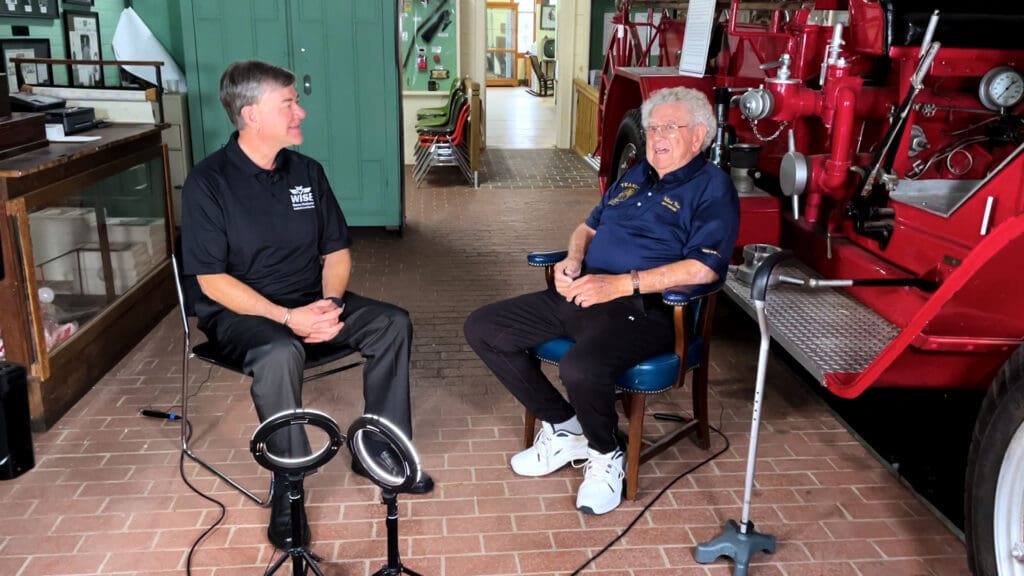
In an exclusive interview, Hillard B. Wise Jr., 91, long-time resident and Father to WNN founder Rusty Wise, provided his own insight into Cherryville. This interview took place at the Cherryville Historical Museum on December 15th, 2022. He paints a vivid picture of a community where the community was the priority, and life was simpler but filled with memories and character.
Early Life and Roots In Lincoln County
Hillard Wise was born in 1931 to parents Hillard Bickle Wise and Ava Stroupe Wise in a large house located behind Bethphage Lutheran Church in Lincolnton, North Carolina. According to Hillard, the church is still standing today. He was delivered by Dr. Forest Houser of Cherryville. When Hillard was in first grade, his family moved to Cherryville.
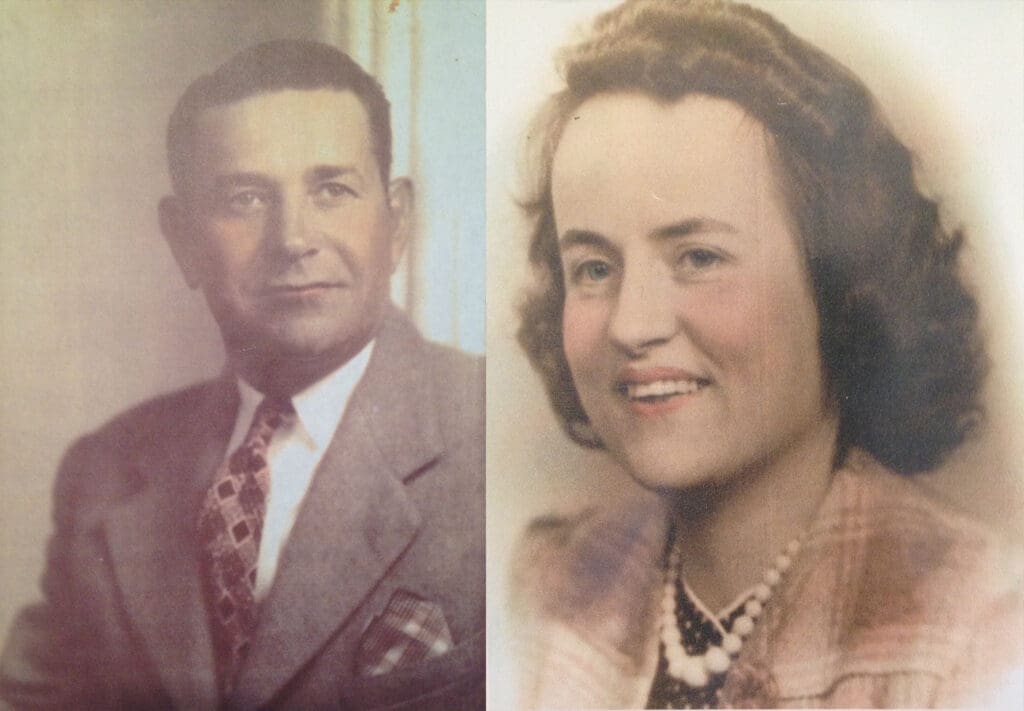
Community bonds and personal tragedy shape his family history. Hillard’s mother, Ava Wise, died in 1942 at the age of 31 after a year-long battle with illness. At the time, Hillard was 10 years old and in the 5th grade. He and his brother Joe Wise, about three years younger, went to live with their grandmother Stroupe on Dixie Street in Cherryville. Hillard’s sister Jill Wise Daggerhart, who was seven years younger, went to live with other family members.
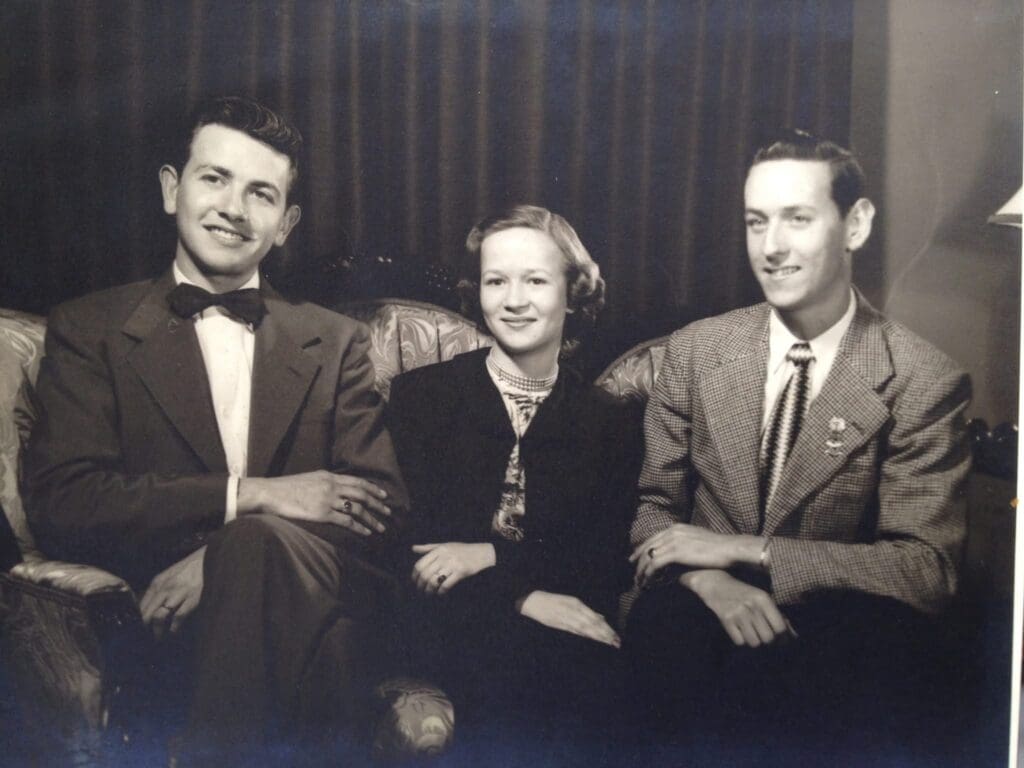
“We lived with grandmother Stroupe on Dixie Street in Cherryville, we lived there till my dad remarried about five or six years after my mother died.” Hillard said.
School Days and Work Ethic
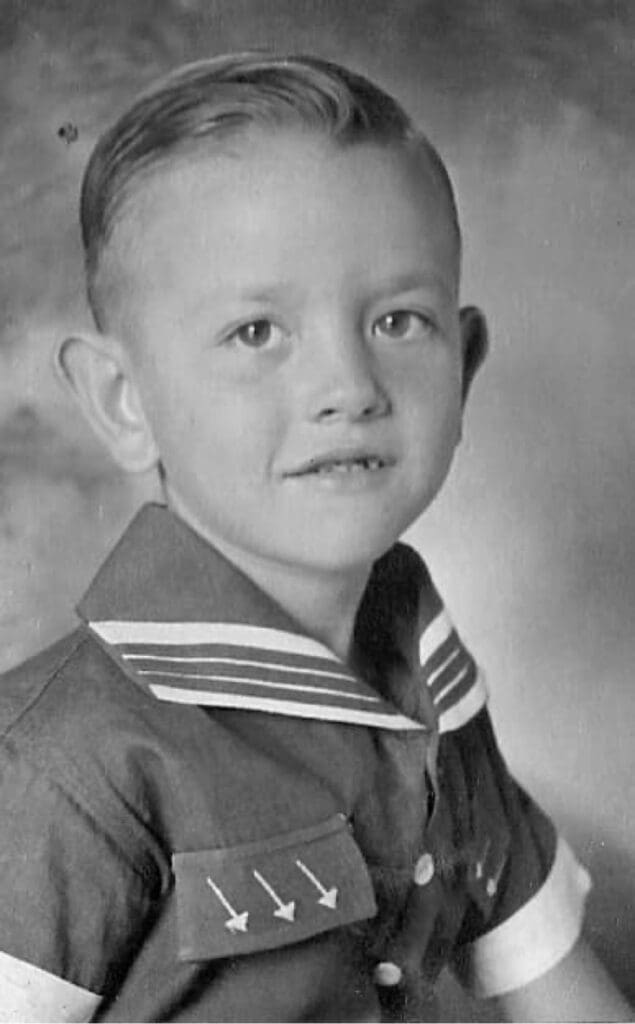
Despite his personal struggles, Hillard did well in school. “I was an honor student, and I was proud of it. I was a member of the Beta Club,” he says. But school wasn’t all he focused on – work was instilled in him early. His dad had a block company in Cherryville, just below where the library in Cherryville is now.
“It was just an open building where they made cement blocks,” he explains. “For several years, cement blocks were really popular.”
Hillard developed a strong work ethic early on. Ultimately, he became a newspaper boy; he sold the Cherryville Eagle for 5 cents, the Gaston Gazette, and the Charlotte Observer. He also sold chickens, cut grass for people with what he called “the old push mower,” and did odd jobs around town. He was driven by a constant desire to always have money in his pocket.
A Vibrant Downtown
When Hillard was young, Cherryville was full of life. On Saturdays, the streets were packed with people — both locals and visitors — and cars had to park blocks away. People strolled through the busy town center, enjoying the lively atmosphere.
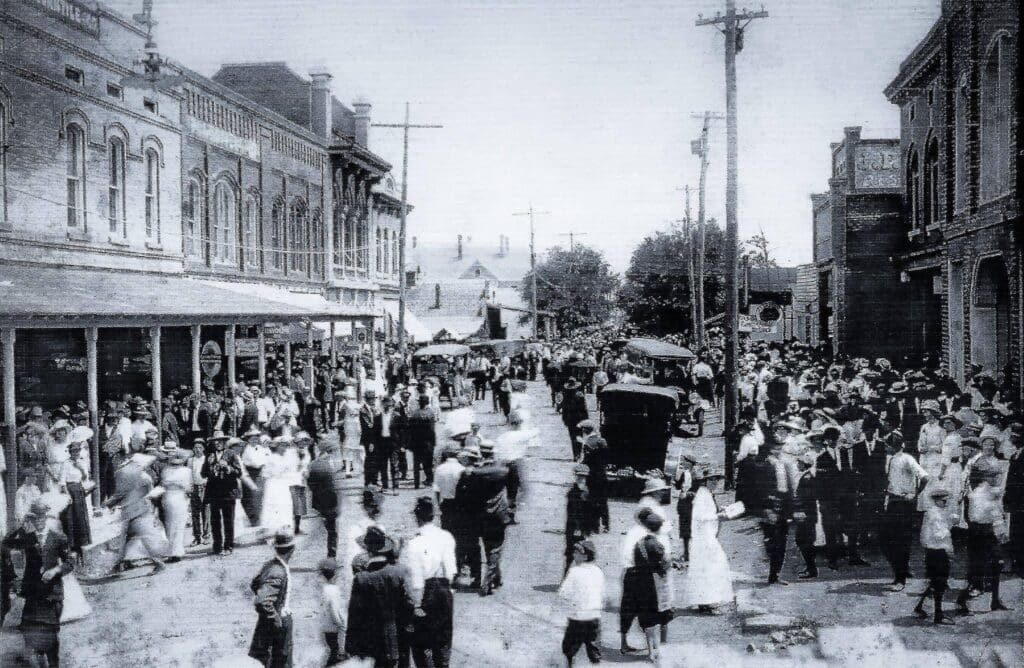
Back then, Cherryville had just about everything you could need. There were two movie theaters: the Carolina, which later burned down, and the Strand Theatre, where Home Folks is today. Later, a third theater, the Lester, was built near the Gazebo Mini Park today.
Main Street was busy with car dealerships like Ford, Chrysler, and Chevrolet. Hillard remembers that you hardly ever needed to leave town, only going to Shelby or Gastonia if you really had to.
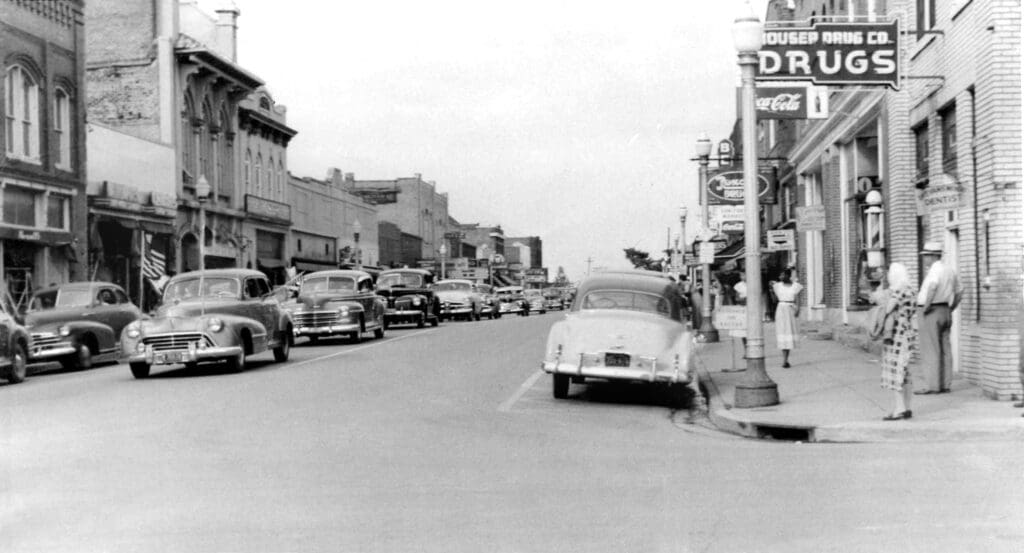
The department stores were popular, too. At Harrelson’s department store, ladies’ clothing was displayed on the second floor, while downstairs, tables were covered with neatly folded pants for shoppers to look through and try on.
The Mill Village Culture
The textile mills significantly influenced the social structure of Cherryville. The town was developed around these mill villages, with a total of 13 mills operating in the area.
Notable mills included Gaston Manufacturing Company, which later operated as Dora Yarn Mills; Vivian Manufacturing Company, originally known as “Old Sardine” and later rebranded as Nuway Spinning Company; Melville Manufacturing Company; Howell Manufacturing Company; and Rhyne Houser Manufacturing Company, which eventually became part of Burlington Industries’ Madison Division. Additionally, there was Carlton Yarn Mills, Inc. All of these mills have since closed down.
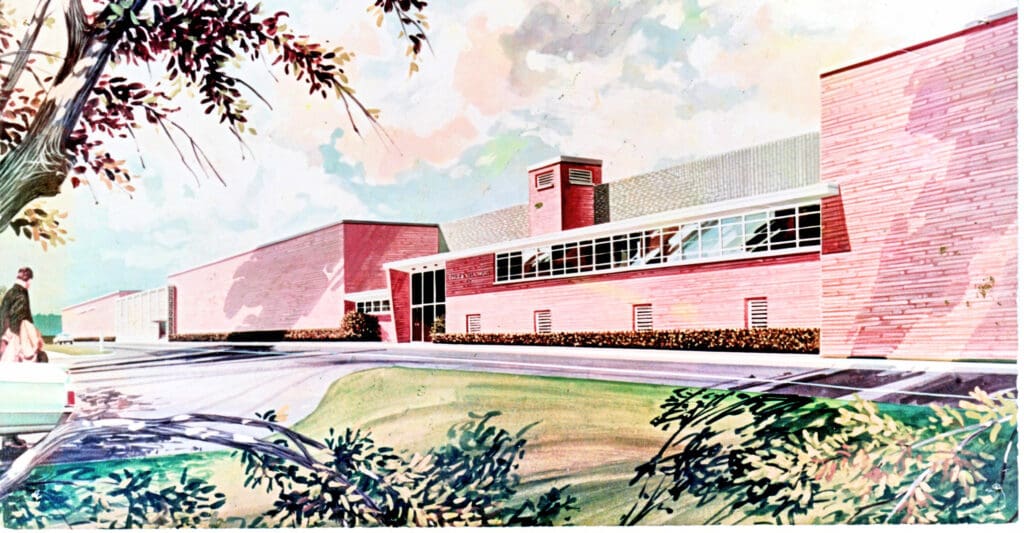
Hillard recounted the names of various mills – the Carlton, the Dora Yarn, the Howell, and two Rhyne-Houser mills.
“There were no better people in Cherryville than mill village people because the majority of the people, that’s where they worked,” Hillard observes. “You didn’t have a car. You walked to work, to school, to church. The only people in the mill village that had a car would be the boss man.”
A Career Change
For about fifteen years, Hillard followed in his father’s footsteps in the plastering business. “My dad brought me up, and when I was a young boy out of school in the summer, he taught me that trade.” The family business was called H.B. Wise and Son.
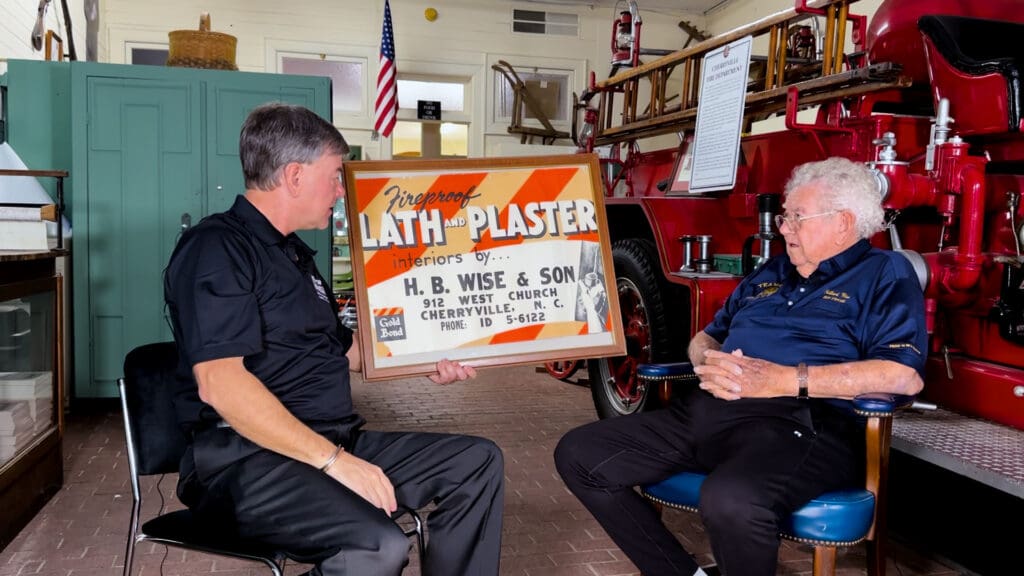
However, the plastering industry underwent a significant change. “Sheetrock came along and put plasters straight out of business,” he explained. This shift led to a career change in 1964.
“I was a city boy that had never even been in a truck,” Wise recalls. But he had friends who worked at Carolina Freight, and with their help, he began a new chapter. “Mr. Teddy Gurley was the head man back then. He was a friend of mine. I told him, ‘I’ve never been in a truck,’ and he told me to go to Raleigh Truck Drivers School for four weeks.”
Hillard went on to drive for Carolina Freight from 1964 to 1994 and proudly noted, “I drove 30 years and was never charged with an accident.”
The Wise-Hallman Tragedy (1909)
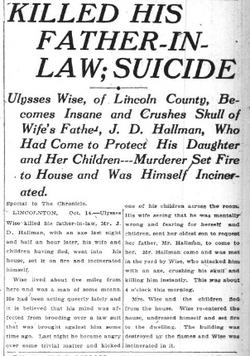
Hillard recounted a difficult and tragic incident involving his grandfather, Ulysses S. Wise, a prominent and wealthy farmer, and Ulysses’s father-in-law and neighbor, Joseph D. Hallman. This tragedy occurred on October 14th, 1909, and is documented in a Lincoln Times newspaper article as well as other newspapers.
Hillard explained, ‘My grandfather had got some upset about some problems with some people, and he was drinking, and he set the house on fire and run everybody out of there.’
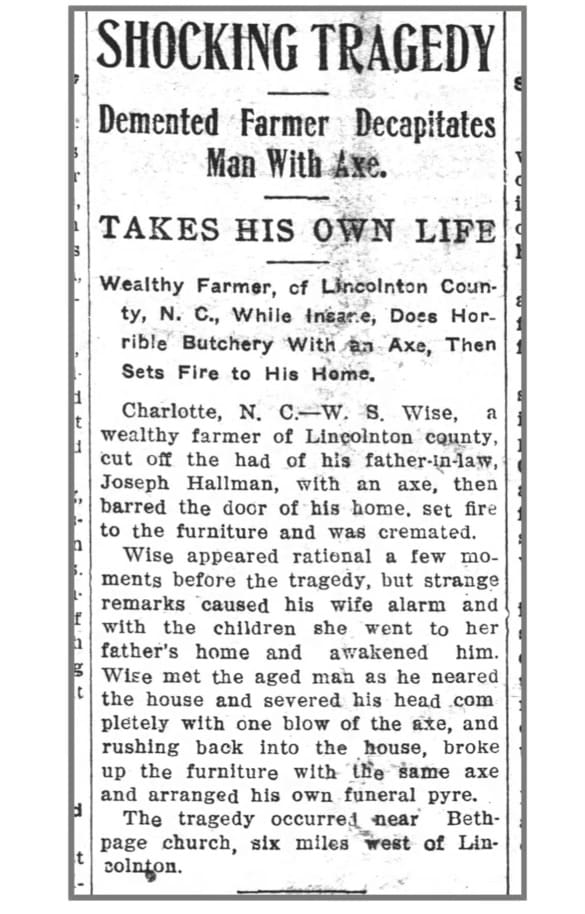
According to Hillard, Mr. Hallman attempted to intervene and was tragically killed. ‘He came up, he hit him in the head and killed him,’ Hillard stated, referencing the newspaper account. News reports noted that Wise cut the head off of Hallman with an axe, then barricaded himself in his house and set it on fire, cremating himself. One headline read, “Cut off the head of the father-in-law with an axe, rushed back into the house, broke up furniture, and arranged his own funeral pyre.” Hillard said this occurred when his father was very young, at the age of 6, and it was rarely discussed within the family. The incident happened in western Lincoln County in the area behind the Bethpage Lutheran Church, Lincolnton, NC. Ulysses Wise was 42 years old, and Joseph Hallman was 70 years old.
The Ledbetter Incident (1931)
Also, during the interview, another tragedy was brought up involving Hillard’s wife, Connie. It was not known to Hillard or Connie until after they were married that Connie’s birth dad had tragically died. According to news reports, Odus V. Ledbetter, Connie’s dad, was shot accidentally by his own father, Jason E. Ledbetter. Members of the Mittie Russ (Connie’s Mother) family went to the Ledbetter home to confront the 20-year-old Odus about marrying 18-year-old Mittie after becoming pregnant. The Russ members who went to the Ledbetter home were Mittie’s father, Cyrus R. Russ, and her brothers, Irvin and Arthur Russ.
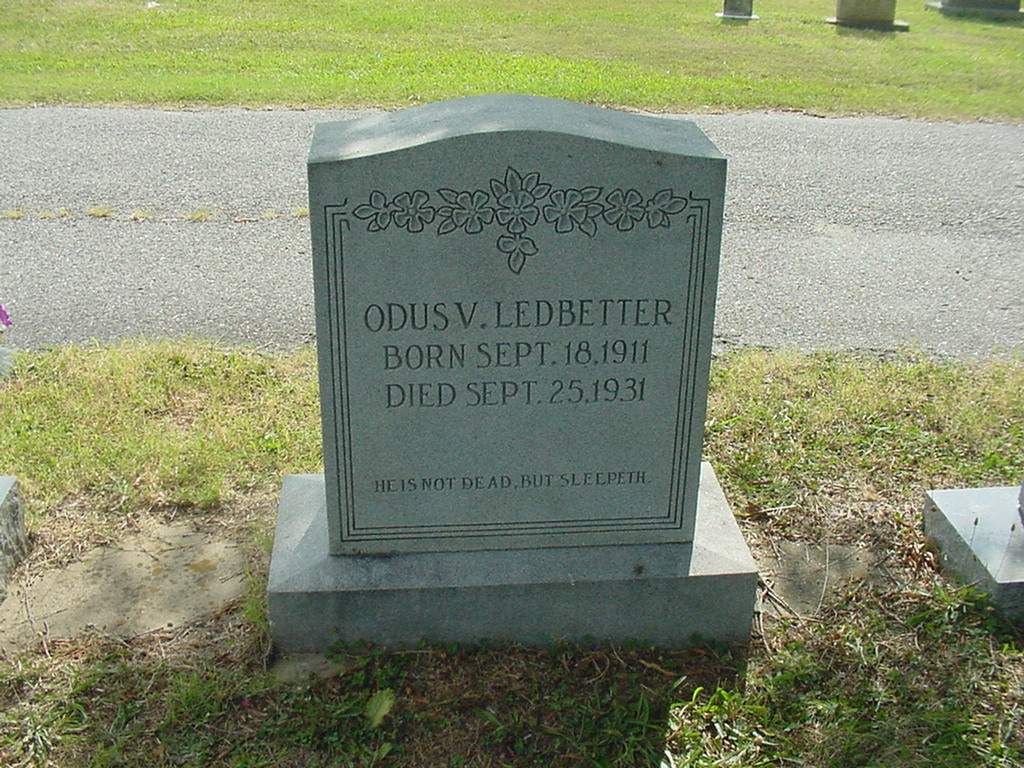
In the Cleveland Star Article, it stated, “In the argument that ensued, the elder Ledbetter shot one time, some of the shot striking two of the Russes while a portion of the load struck and killed his own son”. The incident happened on September 25th, 1931, near the Buffalo Church area in Cleveland County, NC, between Waco and Shelby. A few months later, the elder Ledbetter took his own life due to grief.
Family Life
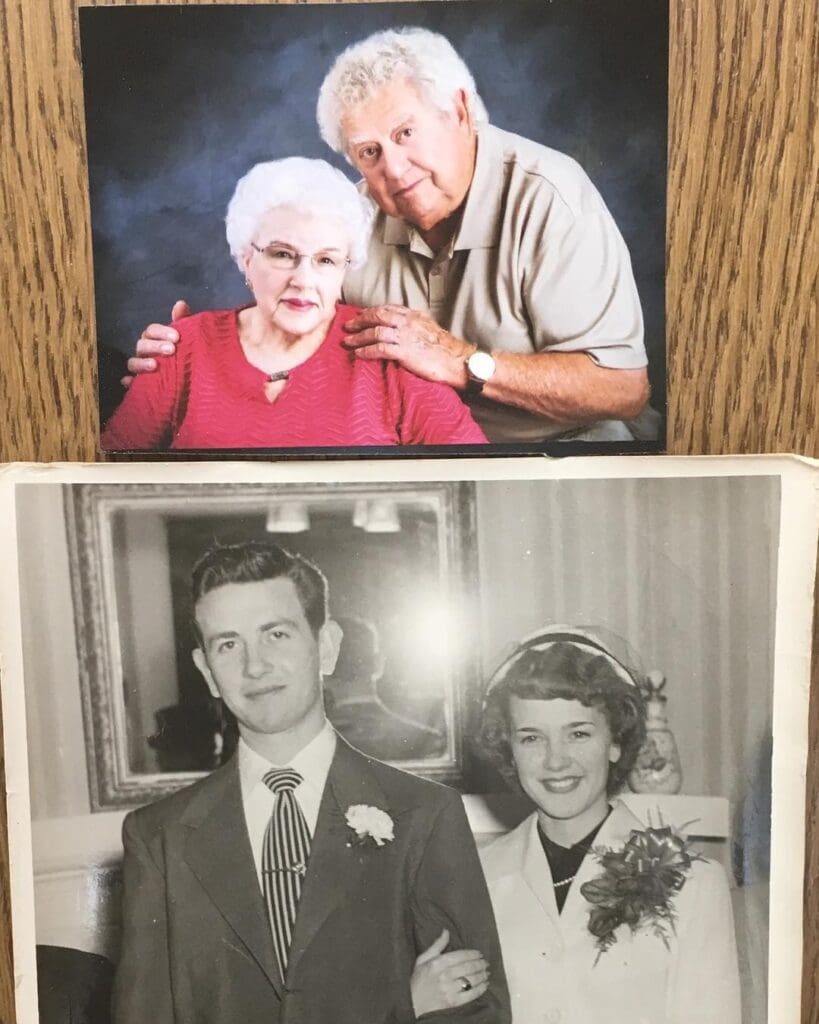
At 18, Hillard’s life significantly turned when he met Connie, a woman he credits with helping him ‘grow up.’ Though their paths crossed during school years and both graduated together in 1949 from Cherryville High School, their romance didn’t blossom until after graduation, while Connie worked at the local Shake Shop. “We fell in love with each other and got married at the Presbyterian church,” Hillard fondly recalls. Their marriage on February 23rd, 1951, is a testament to their deep connection, which endured for an impressive 70 years.
Together, they built a family, welcoming three children: Ava Cheryl, Hillard (‘Butch’) Wise III, and Bradley Russ (Rusty). Hillard’s voice softened when he spoke of Connie, emphasizing her profound impact on his life and the community.
Beyond her devoted wife and mother role, Connie was a driving force for positive change in Cherryville. In 1985, recognizing a need within the community, she founded Cherryville Area Ministries. Initially, the ministry operated at the end of West Main Street near the post office, then across from City Hall, and lastly, at its current location at 212 North Mountain Street. This location became a focal point for those seeking assistance, embodying Connie’s commitment to serving her neighbors.
Recreation and Community
Golf became a significant part of Hillard’s life. He recalls watching the construction of the Cherryville Country Club as a boy. “I walked down to the country club and watched them build it with scoops and horses. They didn’t have bulldozers; they used drag pans.”
The country club became more than just a place to play golf; Hillard described it as a social hub. “Lord, we had such great parties down there. We’d get together on Christmas and other holidays.”
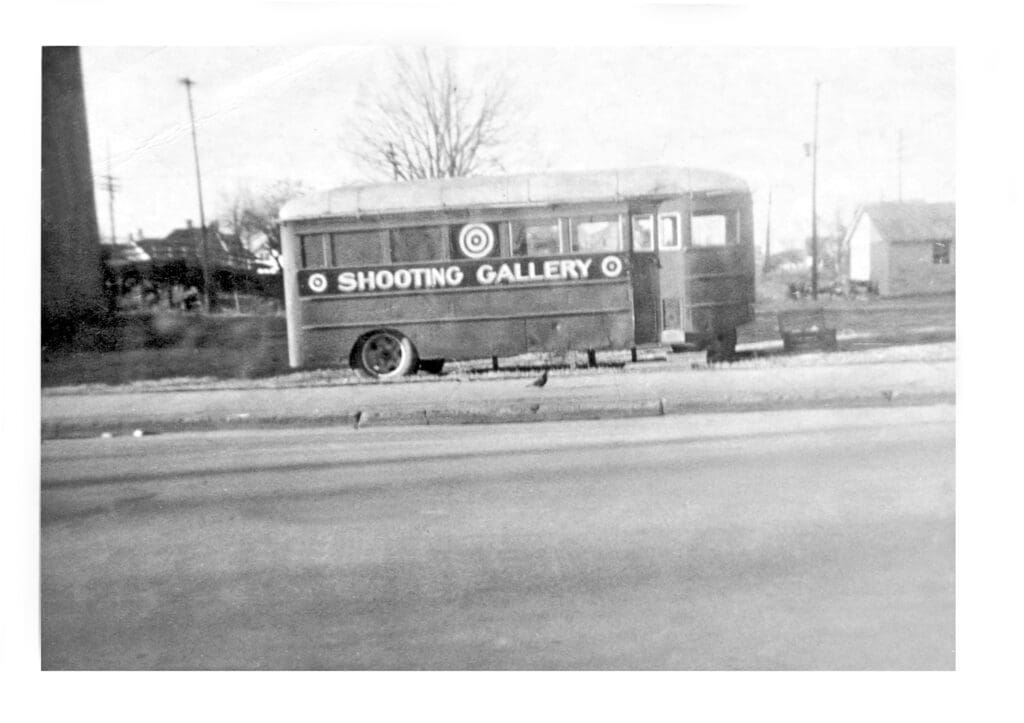
He also reminisces about the annual visits of the R.C. Lee carnival rides. “We called them merry-go-round devices or riding devices, which came every year like a carnival. And it was a big thing. They put it right next to the post office.” The old Post Office was located at the intersection of Mulberry and Main Streets.
Looking Back with Gratitude
Hillard reflected on his life. “God has blessed me with health and wealth at my home. I got golf carts, a nice home, a truck, a car to drive, about three-car garages, and a couple of acres of land. And what is great is I got people that help me – a caregiver, a handyman, and a handywoman that looks after me every day.”
His memories of growing up in Cherryville are fond and centered around community, church, and simple pleasures. “Every time they opened the door, we were there. Church was a great part of our life growing up. We had picnics. That’s where a lot of boys and girls met each other.”
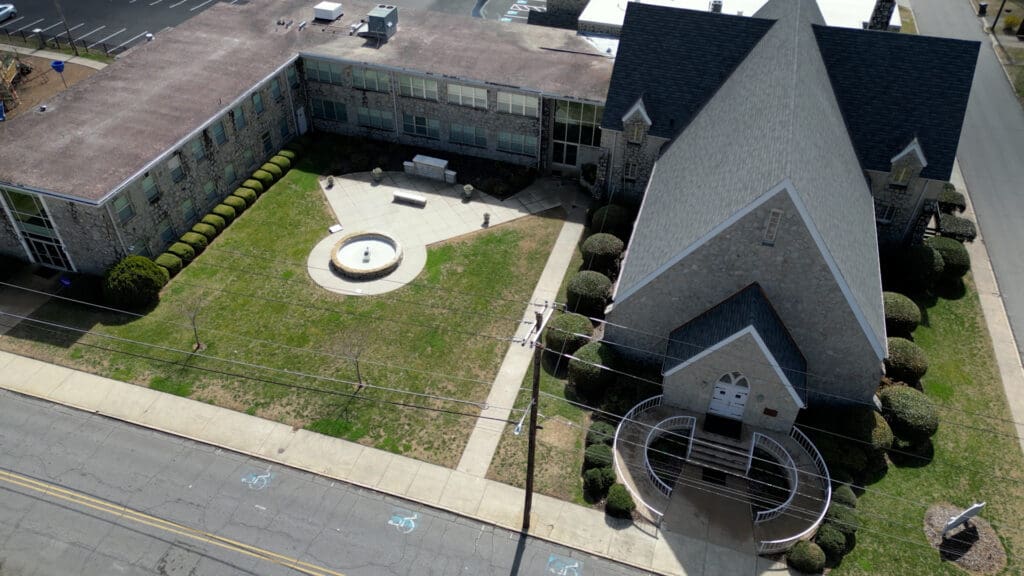
He remembers special treats that seem small today but were significant then. “Every year at Christmas, church would give you a little brown bag with an orange, an apple, nuts, and candy. It was a treat. That was like once a year.”
Hillard summed up his view of Cherryville with deep appreciation: “I’m just so glad that I grew up in a little place like Cherryville, where everybody knew everybody, and people would help each other. It was a wonderful place to live.”
For a more in depth interview check out our video here: Wise Wednesdays: Interview with Hillard B. Wise on Cherryville NC History
For more WNN video news stories, visit YouTube: https://www.youtube.com/@wisenewsnetwork
For further WNN articles and news stories, visit https://wisenewsnetwork.com
Contact WNN at newsdesk@wisenewsnetwork.com
Copyright 2025 Wise News Network. All rights reserved.
